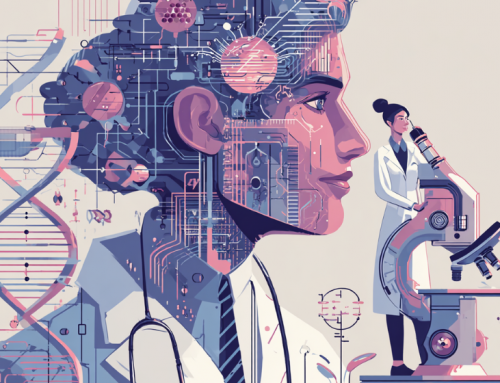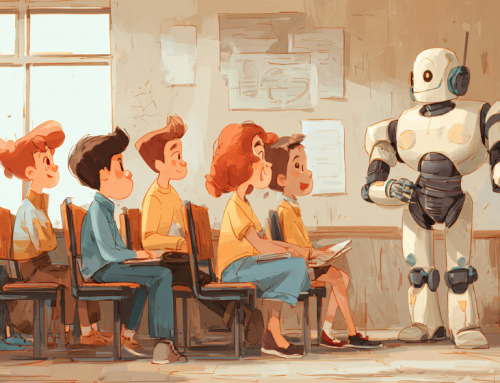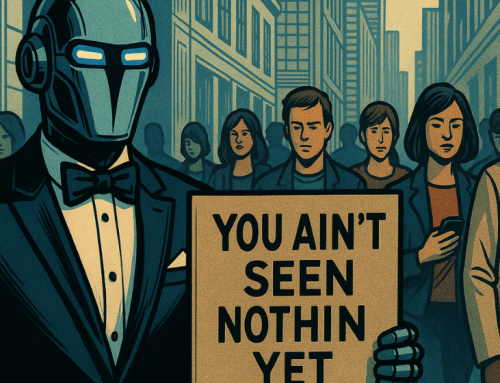
Marc Andreesen says he wants to make sure everybody’s on the same page about not paying artists for their work. Is he serious? (Source: Wikipedia/JD Lasica, photographer)
FTC Writes in Favor of Securing Artist Copyrights in Conflict with Mega Tech Companies
With all the miracle breakthroughs in medicine or manufacturing, the results of adding AI to the process are incredibly significant and money-making. But are they funny? Writer Lucas Ropek of gizmodo.com found the funny in AI with a story about billionaire and techno-optimist Marc Andreessen. The article is humorous, sarcastic and clever.
Creator Economy
The story begins tongue firmly planted in cheek:
“It may come as something of a surprise but Marc Andreessen—co-founder of mega-venture capital firm Andreessen Horowitz and longtime rich guy—is pretty worried about the creator economy.
“To be clear, he’s not worried about ‘creatives,’ aka the artists who toil away in low-paid industries for years in the hopes of one day translating their hard work, talent, and creative inspiration into something others care about. No, no. Andreessen is worried about the creators of ‘generative’ AI software models—the soulless programs that suck up huge amounts of content from the internet (including lots of creative works by the aforementioned artists) and convert it into algorithmically generated crap that people like Andreessen can monetize.”
Sarcastic and funny, even if it is capitalism at its best and worst. The article also covers how the FTC is involved by trying to protect the creators in this world from the high-tech giants who as Ropek puts it:
“…use incredibly powerful algorithms to hoover up every piece of visual art or writing ever published, then turn around and exploit that content to create a product meant to compete with and, in some cases, replace the people who originally created those works?”
FTC Favors High-Tech
The article points out that firms like Google, OpenAI, and Meta are always spending big money in Washington D.C. to get favorable opinions from government agencies like the Federal Trade Commission.
On Tuesday, the FTC submitted some relatively mild opinions about the need to potentially respect existing copyright law as it applies to these burgeoning language models. Since the FTC’s mission is to protect consumers, it’s arguing that the use of AI as it pertains to creative industries could be ‘impacting open and fair competition.’ “
These issues are very similar to the issues that led to the SAG-AFTRA strike and its recent settlement with Hollywood studios.
More specifically, the agency said it was concerned with “questions surrounding liability issues arising from the development or deployment of generative AI” and that it was investigating whether “liability principles [should] apply to harm caused by AI tools trained on creative work that are used to generate new content.”
In its comment to the US Copyright Office, Andreessen Horowitz said, according to businessinsider.com:
“Imposing the cost of actual or potential copyright liability on the creators of AI models will either kill or significantly hamper their development.” The firm went on to argue that the only reasonable way to train AI was using ‘something approaching the entire corpus of the written word’ and ‘an enormous cross-section of all of the publicly available information.'”
Punchline
Author Ropek saved the best line in the article for last. He ends with this:
“The company claimed that undermining AI could jeopardize not only U.S. ‘economic competitiveness’ but also ‘national security.’ Translation: not allowing us to get rich off the backs of artists could mean we lose a war with China.”
While it is difficult to separate what is serious and what part of the article is pure sarcasm, it’s worth reading it in its entirety at the link below. No matter which side of this issue you find yourself on, it’s ironic that a mega-wealthy firm like Andreessen Horowitz thinks that exploiting artists is necessary for national security. And these days, we can all use a good laugh.
read more at gizmodo.com







Leave A Comment